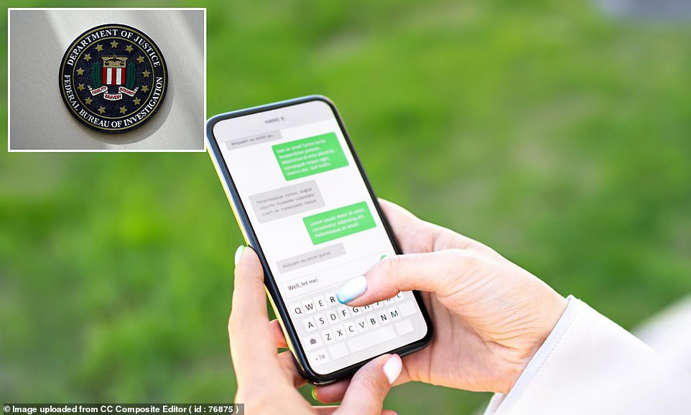Millions of iPhone users in the United States are being advised to be vigilant for a text message that is concerning and to promptly discard it if they encounter it.
Forbes reports that there has been a 700 percent increase in the prevalence of text scams in the past month, despite the fact that they are not a new phenomenon.
The rise has prompted police alerts throughout the nation, and the FBI has now publicly addressed the issue.
Fraudsters are now posing at the Department of Motor Vehicles (DMV) from various states, a seemingly more sophisticated version of the phony unpaid toll texts that have plagued Americans for years.
READ MORE: Scams, Deepfakes, And The Paranoid Age
What is the purpose of the texts?
It has been reported that these official-looking messages threaten individuals with the revocation of their driving privileges or even potential jail time if they fail to pay an unpaid fine.

However, officials have cautioned that this is all a hoax and that an individual is attempting to take your personal information.
What statements have officials made?
Forensic David Palmer, the Supervisory Special Agent of Tennessee, recently stated that these texts “install malware on your phone, which can then access and steal information from your device, or collect your payment information.”
Palmer also advised against clicking on a link in a text message from an unknown sender.
READ MORE: According To The FBI, Internet Scams Brought In $16.6 Billion Last Year
In light of this, individuals are being encouraged to promptly delete these types of messages from their Android and iPhone devices.
Guarido, a browser extension that safeguards against malware, identity theft, and phishing, has been monitoring these fraudulent toll texts for several months. They have observed a concerning 773 percent increase in DMV hoax texts during the first week of June.

“These scam texts redirect individuals to phishing websites that are intended to steal their credit card information and make unauthorized charges,” Guardio stated, as reported by Forbes.
Tennessee, New York, California, Florida, Georgia, Illinois, Texas, and Washington DC are among the states that have been reported to have been impacted by these communications.
What to do in the event that you receive a message
To begin, refrain from clicking on any of the links in the text in order to respond to it. Merely eliminate it. It is imperative that you promptly secure your personal accounts if you have entered personal information.
Additionally, individuals are encouraged to submit a report to the FBI’s Internet Crime Complaint Center at IC3.gov, which can be accessed by clicking here.
Step into the ultimate entertainment experience with Radii+ ! Movies, TV series, exclusive interviews, live events, music, and more—stream anytime, anywhere. Download now on various devices including iPhone, Android, smart TVs, Apple TV, Fire Stick, and more!


